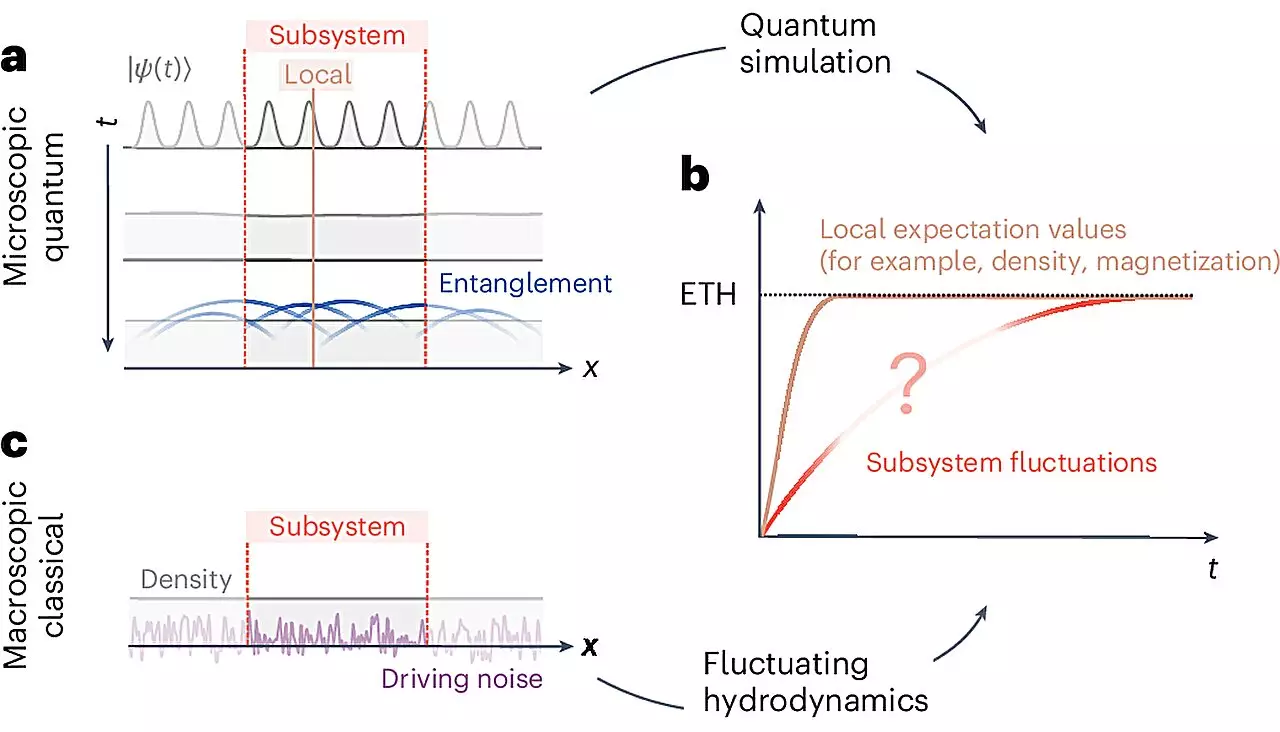The world of quantum physics has long been considered complex and chaotic due to the interactions of many small particles. However, recent research led by Professor Monika Aidelsburger and Professor Immanuel Bloch from the LMU Faculty of Physics challenges this notion. Their study, published in the journal Nature Physics, indicates that quantum many-body systems can be described macroscopically through simple diffusion equations with random noise. This raises the question of whether chaotic quantum systems can also be simplified and described using fluctuating hydrodynamics (FHD).
The study introduces the concept of fluctuating hydrodynamics, which describes the erratic movements of particles in a system as white noise. This theory suggests that the behavior of a system can be determined by a single quantity – the diffusion constant – even in the presence of complex microscopic interactions. By focusing on macroscopic properties rather than microscopic details, FHD simplifies the description of chaotic systems. This approach eliminates the need to delve into the intricate interactions of particles at the microscopic level.
Quantum systems pose unique challenges due to the fundamental differences in the laws governing quantum particles compared to classical particles. Concepts like “uncertainty” and “entanglement” make quantum systems inherently more complex and difficult to describe. Despite these challenges, the research team believes that applying the principles of FHD to chaotic quantum systems could provide valuable insights. The study aims to investigate whether chaotic quantum systems can be simplified and understood through a macroscopic diffusion process.
To explore the behavior of chaotic many-body quantum systems, the research team conducted experiments with ultracold cesium atoms in optical lattices. By preparing the quantum system in a non-equilibrium initial state and allowing it to evolve freely, the team observed the dynamics of the system. Using a high-resolution imaging system, the researchers were able to measure both the average density of particles and their fluctuations. The results indicated that FHD could qualitatively and quantitatively describe the behavior of the system over time.
The findings of the study suggest that chaotic quantum systems, despite their complexity at the microscopic level, can be elegantly described as macroscopic diffusion processes. This has significant implications for understanding and analyzing quantum systems, which have long posed challenges due to their unique properties. By applying the principles of fluctuating hydrodynamics, researchers may be able to simplify the description of chaotic quantum systems and gain valuable insights into their behavior.
The study by Professor Monika Aidelsburger and Professor Immanuel Bloch provides a new perspective on the macroscopic description of chaotic quantum systems. By focusing on simple diffusion equations with random noise, the research team has demonstrated that complex quantum systems can be simplified and understood through the lens of fluctuating hydrodynamics. This opens up new possibilities for studying and analyzing chaotic quantum systems in a more straightforward and intuitive manner.


Leave a Reply